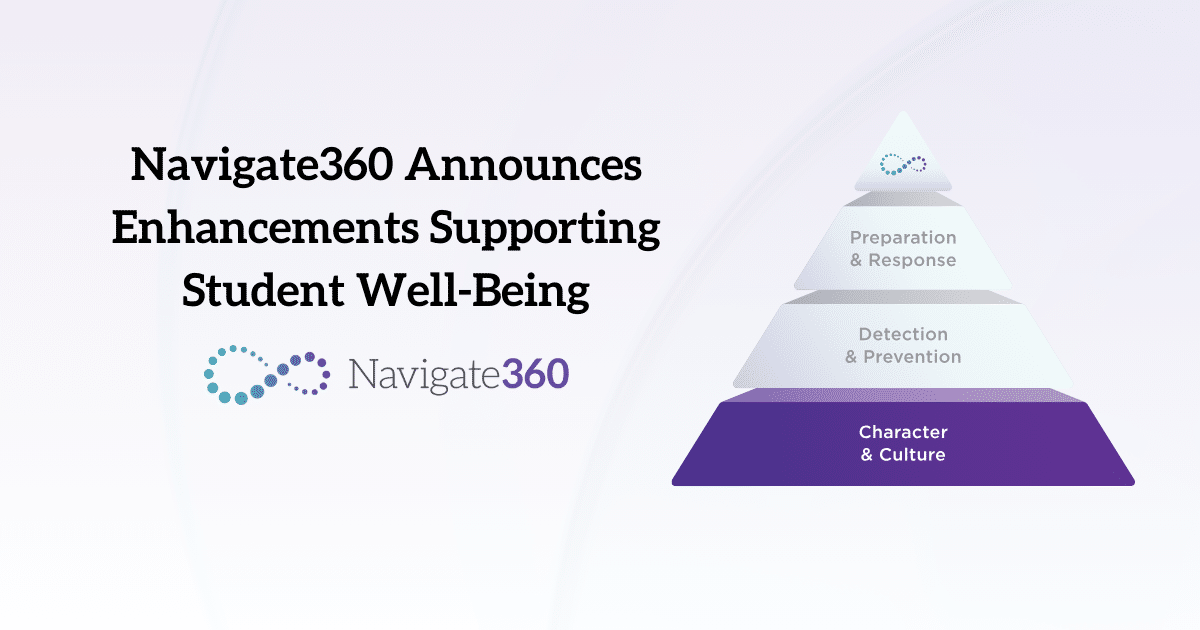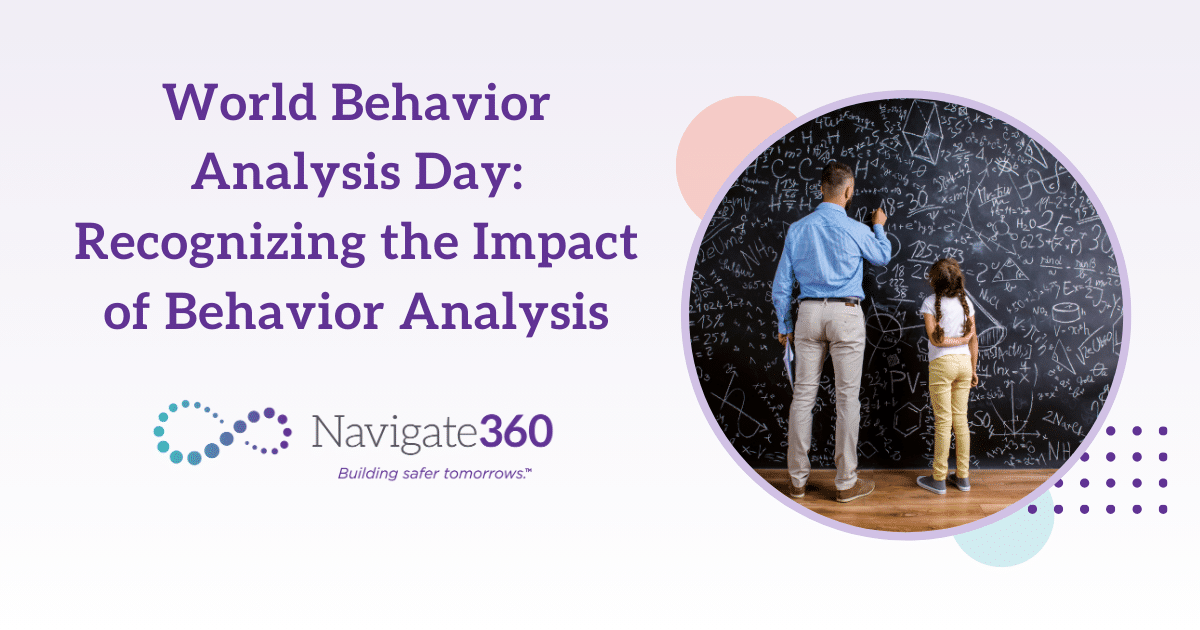Learning Tools for Gens Z and Alpha
Help both Gen Z and Gen Alpha students meet the challenges of their time with SEL.
As a modern-day educator, you probably have experience working with both Millennials and Generation Z students—where Millennials are defined as those born between 1981 and 1996 and Generation Z are those born in the years after. But there’s a new generation in town: Generation Alpha. The succeeding generation after Gen Z, these youngsters are the first generation born entirely within the 21st century. And as Gen Alpha students begin to enter school, educators are spending more and more time putting their heads together to determine the best ways to teach these digital natives. In this article, we’re outlining key distinctions between Gen Z and Gen Alpha—including their different learning preferences—so you can tailor your curricula and support systems to prioritize your students’ mental health, emotional wellbeing, and physical safety district-wide.
Who is Gen Z?
Gen Z students were born between 1996 and 2010, making them middle-school and high-school aged with the tail end of the generation turning 18 in 2028.
Gen Z Characteristics
Gen Z is our first true generation of digital natives. Born into a technological world, information has been placed at their fingertips and social media use has become the norm.
In fact, many members of Gen Z hardly go a day without sustaining relationships through social media apps. A 2018 study found that 45% of adolescents surveyed reported that they were online “almost constantly.” Research is still ongoing on the link between social media and mental health, but a general negative correlation has already been established. Therefore, it makes sense that Gen Z is marked by an uptick in anxiety and depression and has a stronger likelihood of reporting mental health concerns. And unfortunately, less than a third of students believe that their schools—where they spend the majority of their time—are prepared to handle student mental health issues that could lead to self-harm or suicide.
This generation is also incredibly diverse. They’ll likely be the last generation in America that’s predominantly white, with 48% of their population being comprised of Hispanic, Black, and Asian individuals. Their early years also saw the federal legalization of gay marriage and our first Black president. These demographics are essential for school administrators to consider, as a recent poll found that about half of teens (49%) and parents (51%) are aware of a classmate or student who was bullied because of their race, sexual orientation, or income level.
Gen Z students have a lot to contend with, but you can tailor your district-wide curricula to help support them in these areas. For example, you can implement social-emotional learning (SEL) curriculum that focuses on developing self-awareness skills that help students cope with the fallout of daily social media use. SEL curriculum can also teach students social awareness and empathy, allowing them to embrace the diversity around them instead of seeing these differences in a negative light.
How Does Gen Z Learn Best?
When it comes to Gen Z in the classroom, digital savviness is the name of the game. As an educator, this knowledge can make a huge difference in the way you and your faculty communicate with and teach Gen Z students.
For instance, knowing that Gen Z students are used to having information at their fingertips can help educators craft engaging lesson plans that meet them in their comfort zone. Curricula should include lessons that support critical thinking skills by teaching students how to sort through masses of information and determine what’s valuable. Consider using apps, web-based platforms, and other digital resources to engage students on their level and allow them to truly connect to their lessons.
PBIS Rewards Joins Navigate360, Advancing Whole-Child Wellness & Safety!
Navigate360’s whole-child student safety and wellness suite offers the tools, expertise and confidence district leaders need to create safe, supportive school environments — and strengthen students’ academic performance. For the first time, educators can seamlessly connect students with situationally relevant resources that help them return to a pathway of wellness.
Learn MoreWho is Gen Alpha?
Gen Alpha, born between 2010 and 2025, are the first generation born completely within the 21st century. And while Gen Z were our first true digital natives, Gen Alpha will mark a new digital age, given how quickly and exponentially technology advances. The oldest of these students are just beginning middle school after growing up with housemates like Amazon’s Alexa and Apple’s Siri, along with other ubiquitous technologies.
Gen Alpha Characteristics
Gen Alpha is slated to be the most racially diverse generation in American history, and they’re also more likely to grow up in non-traditional households. Given their vast diversity, these students will need social-emotional learning support more than ever. Honing social awareness skills can help make students more empathetic toward others, leading to greater tolerance and even a celebration of diversity. And students’ abilities to connect with others positively have long-term benefits, include better college and career readiness.
A unique digital savviness will also be a defining characteristic of their generation. Gen Alpha will be unimpressed by technological advances in “smart” devices like digital assistants, considering them commonplace. Along with this direct impact of rapidly advancing technology, the pervasiveness of tech will also have secondary effects. Consider that many parents are regularly immersed in their smartphones and that tech-wielding kids aren’t spending as much in-person time playing in their neighborhoods as prior generations did. This could lead to a reduction in social-emotional learning support at home and in their communities, making schools’ roles in providing SEL support even more important.
The COVID-19 pandemic will likely have lasting effects on Gen Alpha as well, although it’s still too early to tell the extent. Spending the better part of a year attending primary school virtually, as many Gen Alpha students did, is bound to have an effect on development, especially when paired with reduced in-person extracurricular activities.
How Does Gen Alpha Learn Best?
Like Gen Z, Gen Alpha will be incredibly comfortable with technology and used to being able to access information at a moment’s notice. Rapid technological advancements, however, could have lasting effects on the attention spans of Gen Alpha students, something that educators will need to keep in mind when choosing curriculum.
A focus on cultivating critical thinking skills will also be essential for Gen Alpha students. Like Gen Z, they will be inundated with information, and their task will be to sort out what’s valuable from the rest during their academic careers and beyond. Given Gen Alpha’s distinct need for social-emotional learning support and their comfort with digital tools, it makes sense to provide SEL curriculum that’s delivered digitally, like Navigate360 Social-Emotional Learning.
Meeting Gen Z and Gen Alpha Students Where They Are
Regardless of their differences, there’s one thing that Gen Z and Gen Alpha have in common: growing up in a digital world. Technology certainly has its benefits; it will be essential to include technological delivery and research methods in curriculum for both generations. But it’s also important to consider the effects that digital environments can have on social and emotional wellbeing.
And that’s why SEL curriculum should be an essential program in every school district. Both Gen Z and Gen Alpha students need schools to step into their role of providing social-emotional learning support to help them navigate life in the 21st century. SEL curriculum has a proven track record for improving student outcomes, especially when it’s delivered in engaging, digital formats students are comfortable with, such as Navigate360’s digital SEL curriculum.
Learn more about Navigate360 SEL and the many ways it can help both Gen Z and Gen Alpha students meet the challenges of their time. And don’t hesitate to get in touch with any questions.




